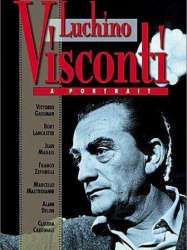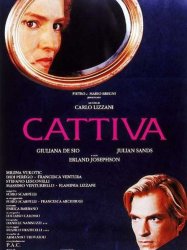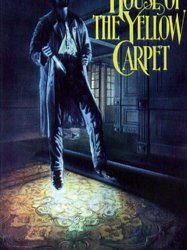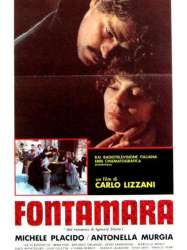Carlo Lizzani is a Actor, Director, Scriptwriter, Producer and Assistant Director Italien born on 3 april 1922 at Rome (Italie)

Carlo Lizzani (3 April 1922 – 5 October 2013) was an Italian film director, screenwriter and critic.
Born in Rome, after World War II Lizzani worked as a scenarist on such films of as Roberto Rossellini's Germany Year Zero, Alberto Lattuada's The Mill on the Po (both 1948) and Giuseppe De Santis' Bitter Rice (1949), for which he received an Academy Award nomination for Best Original Story.
After directing documentaries, he debuted as a feature director with the admired World War II drama Achtung! Banditi! (1951). Respected for his awarded drama Chronicle of Poor Lovers (1954), he has proven a solid director of genre films, notably crime films such as The Violent Four (1968) and Crazy Joe (1974) or crime-comedy Roma Bene (1971). His film L'oro di Roma (1961) examined events around the final deportation of the Jews of Rome and the Roman roundup, grande razzia, of October 1943. For his 1968 film Bandits in Milan he won a David di Donatello award as best director and a Nastro d'Argento award for best screenplay.
Lizzani worked frequently for Italian television in the 1980s and supervised the Venice International Film Festival for four editions, from 1979 to 1982. In 1994 Lizzani was a member of the jury at the Berlin Film Festival.
For his 1996 film Celluloide, which deals with the making of Rome, Open City, he received another David di Donatello award for his screenplay.
He committed suicide in Rome at the age of 91, when he jumped from the balcony of his home in Via dei Gracchi on 5 October 2013.
Auparavant, il avait, au cours des années 1940-1943, contribué par divers articles aux revues Cinema, Bianco e Nero (titre se référant au cinéma Noir Blanc), ainsi qu'à l'organe officiel du groupe universitaire fasciste, Roma fascista.
En 1943, après l'Armistice de Cassibile, il participe en tant que partisan à la Résistance romaine et adhère au Parti communiste italien.
Son premier long métrage, Achtung! Banditi! (1951), est un hommage exalté au combat des résistants antifascistes italiens. Mais, c'est surtout La Chronique des pauvres amants (Cronaca di poveri amanti) (1954), adaptation d'un roman de Vasco Pratolini, qui lui vaudra la consécration internationale avec un prix au Festival de Cannes. L'évocation de la Résistance et des événements liés à la Deuxième Guerre mondiale aura été un de ses thèmes favoris puisqu'il y reviendra dans Traqués par la gestapo (L'Oro di Roma, 1961), sur la déportation des juifs de Rome, et dans Le Procès de Vérone (1963), sur l'exécution du comte Galeazzo Ciano par les extrémistes mussoliniens.
Au fil des années, il s'est rapproché des idées de gauche et du syndicalisme, et fut notamment cosignataire d'une pétition contre le commissaire Luigi Calabresi, avant l'assassinat de celui-ci. De 1979 à 1982, il fut directeur de la Mostra de Venise.
En 1987, il a été filmé par Gérard Courant pour sa série cinématographique Cinématon. Il est le numéro 915 de cette anthologie.
Il était chargé de cours à l'Académie Act Multimedia de Cinecittà, à Rome.
Carlo Lizzani s'est suicidé le 5 octobre 2013 en sautant du balcon du troisième étage de son appartement dans le centre de Rome.
Source : Wikidata
Carlo Lizzani

- Infos
- Photos
- Best films
- Family
- Characters
- Awards
Nationality Italie
Birth 3 april 1922 at Rome (Italie)
Death 5 october 2013 (at 91 years) at Rome (Italie)
Birth 3 april 1922 at Rome (Italie)
Death 5 october 2013 (at 91 years) at Rome (Italie)
Carlo Lizzani (3 April 1922 – 5 October 2013) was an Italian film director, screenwriter and critic.
Born in Rome, after World War II Lizzani worked as a scenarist on such films of as Roberto Rossellini's Germany Year Zero, Alberto Lattuada's The Mill on the Po (both 1948) and Giuseppe De Santis' Bitter Rice (1949), for which he received an Academy Award nomination for Best Original Story.
After directing documentaries, he debuted as a feature director with the admired World War II drama Achtung! Banditi! (1951). Respected for his awarded drama Chronicle of Poor Lovers (1954), he has proven a solid director of genre films, notably crime films such as The Violent Four (1968) and Crazy Joe (1974) or crime-comedy Roma Bene (1971). His film L'oro di Roma (1961) examined events around the final deportation of the Jews of Rome and the Roman roundup, grande razzia, of October 1943. For his 1968 film Bandits in Milan he won a David di Donatello award as best director and a Nastro d'Argento award for best screenplay.
Lizzani worked frequently for Italian television in the 1980s and supervised the Venice International Film Festival for four editions, from 1979 to 1982. In 1994 Lizzani was a member of the jury at the Berlin Film Festival.
For his 1996 film Celluloide, which deals with the making of Rome, Open City, he received another David di Donatello award for his screenplay.
He committed suicide in Rome at the age of 91, when he jumped from the balcony of his home in Via dei Gracchi on 5 October 2013.
Biography
Carlo Lizzani a participé au scénario et à la mise en scène du film Riz amer de Giuseppe De Santis, sorti en 1949. Il était alors encore jeune assistant et n'avait à son actif que Le soleil se lèvera encore (Il Sole sorge ancora) (1946) de Aldo Vergano, dans lequel il jouait aussi comme acteur, et Allemagne année zéro (Germania anno zero de Roberto Rossellini, 1948).Auparavant, il avait, au cours des années 1940-1943, contribué par divers articles aux revues Cinema, Bianco e Nero (titre se référant au cinéma Noir Blanc), ainsi qu'à l'organe officiel du groupe universitaire fasciste, Roma fascista.
En 1943, après l'Armistice de Cassibile, il participe en tant que partisan à la Résistance romaine et adhère au Parti communiste italien.
Son premier long métrage, Achtung! Banditi! (1951), est un hommage exalté au combat des résistants antifascistes italiens. Mais, c'est surtout La Chronique des pauvres amants (Cronaca di poveri amanti) (1954), adaptation d'un roman de Vasco Pratolini, qui lui vaudra la consécration internationale avec un prix au Festival de Cannes. L'évocation de la Résistance et des événements liés à la Deuxième Guerre mondiale aura été un de ses thèmes favoris puisqu'il y reviendra dans Traqués par la gestapo (L'Oro di Roma, 1961), sur la déportation des juifs de Rome, et dans Le Procès de Vérone (1963), sur l'exécution du comte Galeazzo Ciano par les extrémistes mussoliniens.
Au fil des années, il s'est rapproché des idées de gauche et du syndicalisme, et fut notamment cosignataire d'une pétition contre le commissaire Luigi Calabresi, avant l'assassinat de celui-ci. De 1979 à 1982, il fut directeur de la Mostra de Venise.
En 1987, il a été filmé par Gérard Courant pour sa série cinématographique Cinématon. Il est le numéro 915 de cette anthologie.
Il était chargé de cours à l'Académie Act Multimedia de Cinecittà, à Rome.
Carlo Lizzani s'est suicidé le 5 octobre 2013 en sautant du balcon du troisième étage de son appartement dans le centre de Rome.
Best films
Usually with
Filmography of Carlo Lizzani (52 films)
Actor

Pope John XXIII (2002)
Directed by Giorgio Capitani
Origin Italie
Genres Drama, War, Biography, Historical
Actors Edward Asnere, Claude Rich, Michael Mendl, Franco Interlenghi, Sydne Rome, Jacques Sernas
Roles Pio XII
Rating73%





Ce film débute alors qu'Angelo Roncalli est patriarche de Venise et convoqué pour le conclave de 1958 après le décès de Pie XII. Durant le conclave plusieurs événements marquants de la vie d'Angelo Roncalli y sont relatés:

Luchino Visconti (1999)
Directed by Carlo Lizzani
Genres Documentary
Actors Claudia Cardinale, Luchino Visconti, Burt Lancaster, Jean Marais, Giuseppe De Santis, Carlo Lizzani
Roles Self
Rating60%






The Tough and the Mighty (1969)
Directed by Carlo Lizzani
Genres Drama, Thriller, Biography, Action
Themes Seafaring films, Transport films, Gangster films
Actors Terence Hill, Tano Cimarosa, Attilio Dottesio, Clelia Matania, Frank Wolff, Helena Ronee
Roles Journalist (uncredited)
Rating64%





Dans l'arrière-pays sarde, il existe des règles particulières, indépendantes de celles du reste de l'île. Graziano Cassitta commet un meurtre de vengeance, se retrouve en prison et s'échappe avec l'espagnol Miguel Lopez. Se cachant, les deux forment un gang et mènent ensemble des enlèvements et autres actes de banditisme jusqu'à ce que Miguel meure dans une fusillade avec la police. Graziano parvient à échapper à la capture, mais après un court laps de temps, arrêté à un point de contrôle, il est arrêté par la police.

The Violent Four (1968)
, 1h35Directed by Carlo Lizzani
Origin Italie
Genres Drama, Thriller, Crime
Actors Gian Maria Volonté, Ray Lovelock, Tomás Milián, Carlo Lizzani, Carla Gravina, Agostina Belli
Roles Police official (uncredited)
Rating70%





Le film suit tout d'abord la police avec un souci quasi documentaire sur un braquage sanglant à Milan qui a occasionné la mort de quatre personnes. Puis nous passons du côté des bandits.

Tragic Hunt (1947)
, 1h25Directed by Carlo Lizzani, Giuseppe De Santis, Sergio Grieco
Origin Italie
Genres Drama, Action
Actors Vivi Gioi, Massimo Girotti, Carla Del Poggio, Andrea Checchi, Checco Rissone, Umberto Sacripante
Rating69%





After the Second World War, in Emilia-Romagna, Italy, a cooperative has been founded by peasants. War has destroyed the country. A group of bandits, with former Nazi-collaborator Daniela, known as 'Lili Marlene' (Vivi Gioi), holds up the truck where the money of the cooperative is travelling. All the peasants search for the thieves in a tragic hunt.

Outcry (1946)
, 1h35Directed by Aldo Vergano
Origin Italie
Genres Drama, War
Themes Political films
Actors Massimo Serato, Lea Padovani, Elli Parvo, Gillo Pontecorvo, Checco Rissone, Carlo Lizzani
Roles Don Camillo, il prete
Rating68%





La vie dans un château de la plaine lombarde et son exploitation agricole, à la fin de la Deuxième Guerre mondiale. L'arrivée d'un déserteur qui s'y cache et se lie avec la fille d'un résistant, puis avec la propriétaire du domaine. À son tour, il rejoint le maquis antifasciste. On assiste à la fusillade de deux résistants : un prêtre et un communiste. Les ouvriers se rebellent et chassent les occupants allemands... Un des films essentiels sur la Résistance italienne.
Director

Luchino Visconti (1999)
Directed by Carlo Lizzani
Genres Documentary
Actors Claudia Cardinale, Luchino Visconti, Burt Lancaster, Jean Marais, Giuseppe De Santis, Carlo Lizzani
Rating60%






Celluloide (1996)
Directed by Carlo Lizzani
Origin Italie
Genres Drama, Historical
Actors Giancarlo Giannini, Massimo Ghini, Anna Falchi, Lina Sastri, Massimo Dapporto, Antonello Fassari
Rating66%





Histoire de la genèse et du tournage de Rome, ville ouverte alors que l'Italie est encore en proie aux difficultés de la guerre.

The Wicked (1991)
Directed by Carlo Lizzani
Genres Drama, Romance
Actors Julian Sands, Giuliana De Sio, Erland Josephson, Milena Vukotic, Didi Perego, Massimo Venturiello
Rating61%






Cause à l'autre (1988)
Directed by Carlo Lizzani
Origin France
Genres Crime
Actors Patricia Millardet, Tony Amendola
Victor (Giovanni Vettorazzo) est un assureur italien criblé de dettes à cause de sa passion pour les courses de chiens. Il contracte un emprunt auprès de la mafia mais ne parvient pas à rentrer dans ses frais. Il rencontre alors Eléna (Patricia Millardet) qui souhaite souscrire une assurance sur la vie de son mari ... Devant l'insistance de la mafia qui le presse de rendre de l'argent qu'il n'a pas, il accepte ce contrat.

Mother Ebe (1985)
Directed by Carlo Lizzani
Genres Drama, Biography
Actors Stefania Sandrelli, Ida Di Benedetto, Barbara De Rossi, Paolo Bonacelli, Carlo Monni, Laura Betti
Rating55%






Directed by Carlo Lizzani
Origin Italie
Genres Thriller, Horror, Noir
Actors Vittorio Mezzogiorno, Erland Josephson, Milena Vukotic, Béatrice Romand
Rating60%





Victime de cauchemars et de visions, Franca (Béatrice Romand) est victime d'une sombre machination imaginée par son époux, Antonio (Vittorio Mezzogiorno), dans le but de la guérir. Elle rencontre ainsi un étrange personnage, le professeur (Erland Josephson).

Fontamara (1980)
, 2h19Directed by Carlo Lizzani
Genres Drama
Actors Michele Placido, Ida Di Benedetto
Rating67%





In 1929 in Abruzzo, in the mountain villages of Pescina and Fontamara, near Avezzano, the people are subjugated by the arrival of a team of fascists. The militiamen prove hostile, preventing citizens from obtaining supplies necessary to survive the imminent winter. The small Berardo is shocked by the rape of his mother by a fascist officer, and is forced to go to Rome, meditating revenge. Ten years later Berardo in fact, now that he has become large, goes back from Rome in Abruzzo, and discovers that the country is still victim of abuse of fascism. The young communist tries to attack squadrons, but is murdered.

Kleinhoff Hotel (1977)
Directed by Carlo Lizzani
Genres Drama
Actors Corinne Cléry, Bruce Robinson, Katja Rupé, Werner Pochath, Michele Placido, Peter Kern
Rating53%





Pascale is a rich and beautiful French lady married to an architect, both often traveling around the world for work and then far away from each other.
 Connection
Connection





